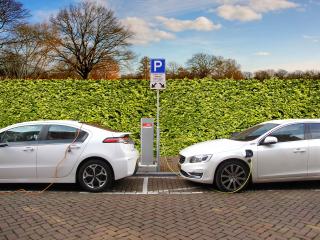
Updated 12/29/2020
The tax treatment of car charging benefit is changing temporarily for the years 2021-2025. The reasons for the Government's proposal state the following as the reason for the temporary change:
According to the government program, the employee benefit for motoring will be reformed so that the benefit will significantly favor the choice of a low-emission car and the electric car charging benefit will be exempt from tax.
In its reply, Parliament states that it has approved the law by temporarily adding a new section 64a to the Income Tax Act, the second paragraph of which contains the following change concerning the tax treatment of charges.
Taxable income is not generated when the employer pays for charging the employee's own car or the limited type company-car at the workplace or at a public charging point.
A similar section can also be found in the tax administration's 2021 tax decision on section 25
When an employee uses electricity paid for by his employer at a workplace or public charging point to charge a limited type company car and pays other possible propulsion costs for the car himself, the monetary value of the car benefit is confirmed as the value of the car benefit in the manner specified in section 17.
For some reason, this section only mentions the charging of a limited type company car, and the tax decision does not specifically mention, similarly to the years 2020 and 2019, about the tax treatment of charging one's own car, although section 64 a of the Income Tax Act approved by Parliament also clearly exempts taxes from charging of one's own car.
By decision of Parliament, section 64 of the Income Tax Act will also be permanently amended by the following addition
An electric car charger is considered to be an accessory for the car when calculating the tax value of the car benefit.
Below is the original text of the article
In the 2019 tax decision on taxation, the administrator has taken into account the growing tax base of electric and hybrid car users by clarifying the tax treatment of car charging in the workplace.
In the decisions of the tax administration, the definition of the operating advantage has previously been described very simply in section 21 as follows:
The benefit of using a car is when the employee pays at least the car's propulsion costs.
The text below has now been added to the article as a new addition:
The employee is also considered to pay for the car's propulsion costs to the extent that loading the car at the workplace is taxed as an employee's benefit in kind in accordance with section 25 or fair value referred to in section 27 or when the employee pays compensation to the employer.
In practice, Article 21 thus clarifies that charging by an employer does not convert a limited car benefit into an unlimited car benefit, as long as the benefit of the charging is taken into account.
Section 25, referred to above, is completely new and states ta concrete monetary value for the provided charging benefit:
When an employee uses electricity paid for by his employer at work to charge his own car or the limited company-car, the monetary value of the benefit is € 30 per month.
Thus, the article gives a more general tax value to the charging option offered by the employer, regardless of whether the employee's own car or the limited company-car is being charged. However, if the employee pays the fair value of the electricity, then no taxable benefit in kind arises.
Section 27, referred to in section 21, on the other hand, applies to benefits in kind more generally and goes as follows:
The fair value of an advantage whose fair value appears to be lower than the monetary value under this Decision, or which is not mentioned above, shall be its fair value.
The monetary value of the benefit under this decision shall be reduced by the compensation charged by the employer to the employee.
In section 25, the taxpayer has thus estimated the value of a full-time charge to be € 30 / month, but if he can show that he uses the charging point to a significantly lesser extent, for example through employer-provided reporting or days spent at work, then it may be possible to apply for a tax adjustment.
